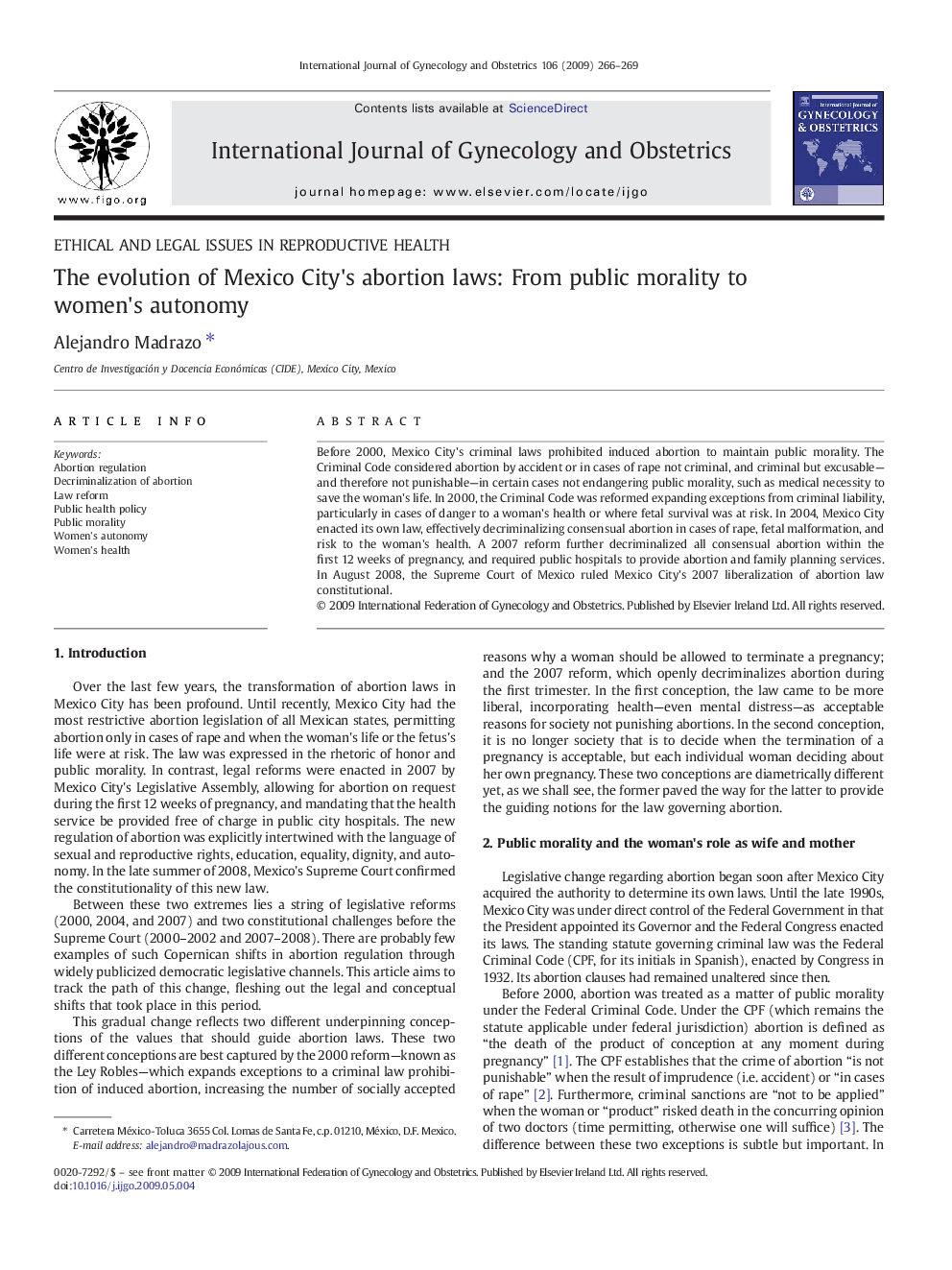| Article ID | Journal | Published Year | Pages | File Type |
|---|---|---|---|---|
| 3953808 | International Journal of Gynecology & Obstetrics | 2009 | 4 Pages |
Before 2000, Mexico City's criminal laws prohibited induced abortion to maintain public morality. The Criminal Code considered abortion by accident or in cases of rape not criminal, and criminal but excusable—and therefore not punishable—in certain cases not endangering public morality, such as medical necessity to save the woman's life. In 2000, the Criminal Code was reformed expanding exceptions from criminal liability, particularly in cases of danger to a woman's health or where fetal survival was at risk. In 2004, Mexico City enacted its own law, effectively decriminalizing consensual abortion in cases of rape, fetal malformation, and risk to the woman's health. A 2007 reform further decriminalized all consensual abortion within the first 12 weeks of pregnancy, and required public hospitals to provide abortion and family planning services. In August 2008, the Supreme Court of Mexico ruled Mexico City's 2007 liberalization of abortion law constitutional.
